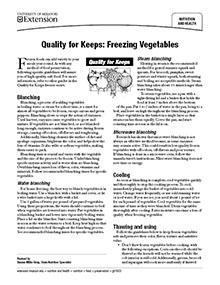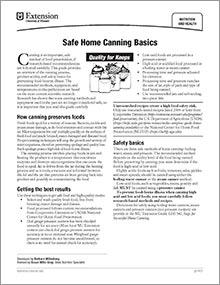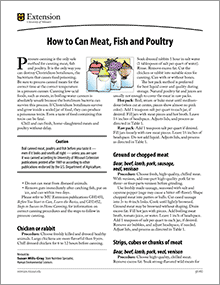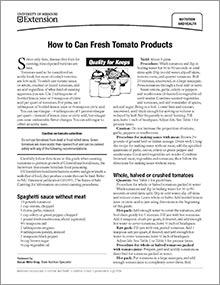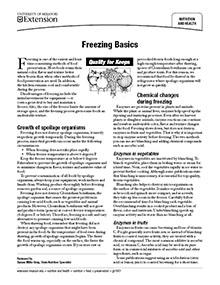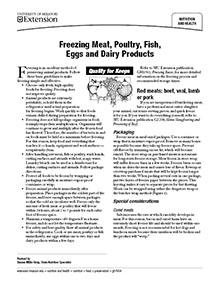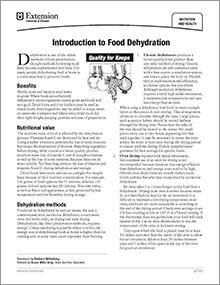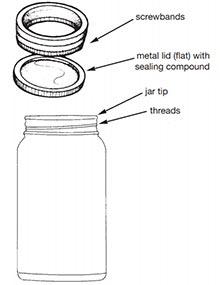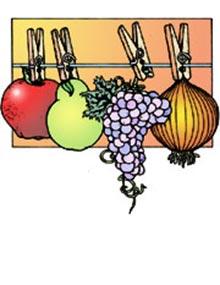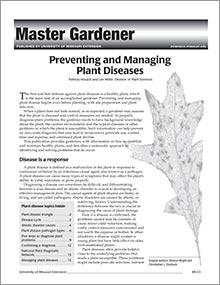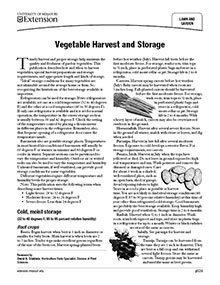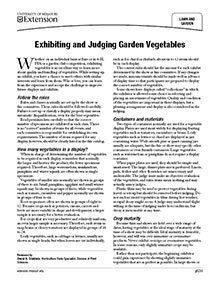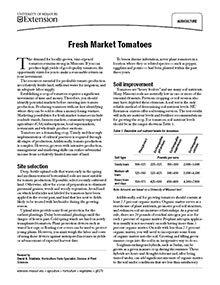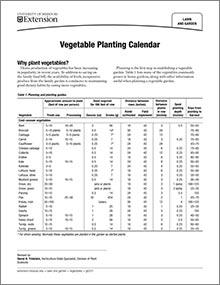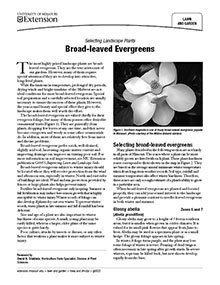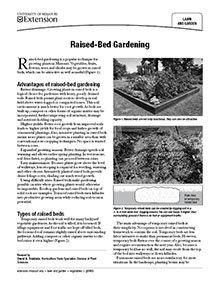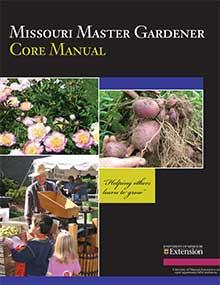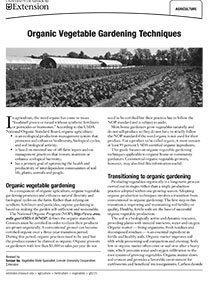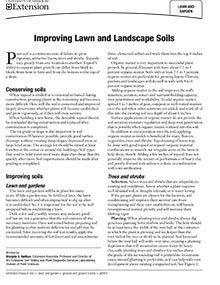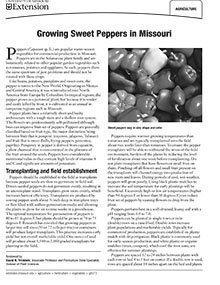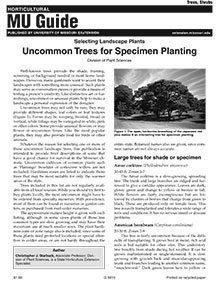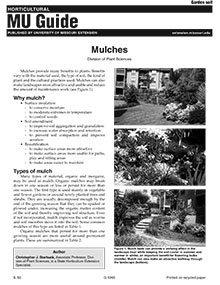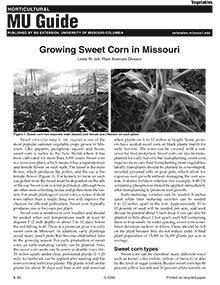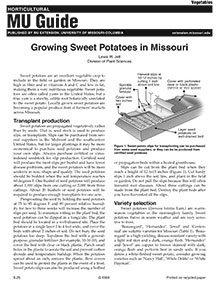The following publications might be of particular interest to people in Nodaway County. For a complete list of MU Extension publications, visit the main Publications page.
How to Freeze Vegetables
Reviewed
From blanching, cooling and freezing to thawing and using, learn how to safely freeze vegetables — asparagus, beans, broccoli, cabbage, cauliflower, celery, corn, herbs, onions, peas, peppers, potatoes, tomatoes and more — in this MU Extension guide.
Safe Home Canning Basics
Revised
Learn safe home canning techniques to preserve fruits, vegetables, meats, and more. Follow research-based methods to ensure food safety and quality.
How to Can Meat, Fish and Poultry
Revised
Learn safe, research-based methods for canning meat, fish, and poultry using pressure canning to prevent foodborne illnesses.
How to Can Fresh Tomato Products
Revised
Learn safe home canning of tomatoes, including acidification, packing methods, and processing times, to prevent botulism and preserve quality.
Freezing Basics
Reviewed
Learn how to freeze food safely, preserve flavor and texture, and avoid common mistakes for better long-term storage.
How to Freeze Meat, Poultry, Fish, Eggs and Dairy Products
Revised
Freezing is an excellent method of preserving animal products. Follow these basic guidelines for simple, effective and safe freezing of meat, poultry, fish, eggs and dairy products.
Introduction to Food Dehydration
Dehydration is one of the oldest methods of food preservation, though methods for drying food have become sophisticated over time. Learn the benefits and methods of dehydrating foods and how to select an electric dehydrator.
Steps for Successful Home Canning
Revised
Learn safe, research-based home canning methods for preserving seasonal produce, including proper equipment, processing times, and techniques.
Frequently Asked Vegetable Questions
Reviewed
Are you wondering why your carrot seeds won’t germinate or when to harvest your zucchini? Find answers to these and many more vegetable questions in this guide.
How to Use Dehydrated Foods
Reviewed
Learn how to rehydrate and cook dehydrated fruits and vegetables for use in soups, casseroles, and baked goods.
Preventing and Managing Plant Diseases
Revised $10
The first and best defense against plant diseases is a healthy plant. Visit our site to learn about Preventing and Managing Plant Diseases.
Vegetable Harvest and Storage
Reviewed
Learn how to properly harvest and store various vegetables to ensure optimal quality and shelf life.
Exhibiting and Judging Garden Vegetables
Reviewed
Learn how to set up a vegetable exhibit, the factors vegetables are judged on, and conditions that could result in disqualification.
Fresh Market Tomatoes
Revised
Discover essential guidelines for profitable tomato production in Missouri, including site selection, soil improvement, and marketing strategies
Vegetable Planting Calendar
Reviewed
Plant a vegetable garden to save on your family food bill and promote good dietary habits. The tables in this guide help Missourians plan what to plant, when to plant and how much of each vegetable to plant.
Selecting Landscape Plants: Broad-leaved Evergreens
Reviewed
Tips on selecting broad-leaved evergreen plants for your landscape, from ideal soil conditions to winter care, enhancing year-round beauty and structure.
Raised-Bed Gardening
Revised
Raised-bed gardening enhances soil drainage and root health, offers customizable design options and extends the growing season for better yields.
Missouri Master Gardener Core Manual
New $40
Editor’s note
Improving Lawn and Landscape Soils
Revised
Learn how to enhance lawn and landscape soils by improving structure, drainage, and fertility through soil testing and organic amendments.
Growing Sweet Peppers in Missouri
Reviewed
From transplanting and field establishment to harvesting and marketing, learn how to grow sweet peppers in Missouri. Fertilization, irrigation, pest management and high-tunnel production are also covered in this University of Missouri Extension guide.
Selecting Landscape Plants: Uncommon Trees for Specimen Plantings
Reviewed
Check out some uncommon landscape trees that have a good chance for survival in the Missouri climate.
Mulches
Revised
Mulch conserves moisture, suppresses weeds, and enhances soil health. Choose materials like pine bark, leaves, or straw for optimal benefits. Apply 2–4 inches to maintain garden vitality.
Growing Sweet Corn in Missouri
Revised
Sweet corn is a popular summer vegetable crop in Missouri that grows well in a wide range of soils. Learn what sweet corn varieties perform well in Missouri; how to fertilize, water and harvest it; and more in this University of Missouri Extension guide.
